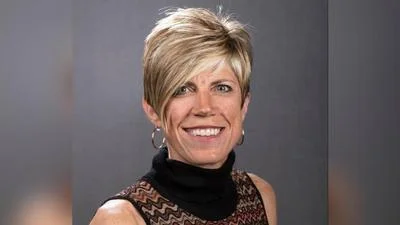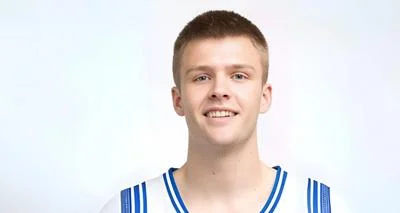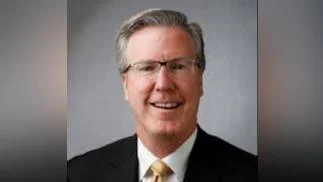Within a span of 10 days in 2008, Nick Poch went from conducting patrol in Iraq to a full day of nursing classes at the University of Iowa.
It was a transition, to say the least.
“We did our coming home ceremony on Saturday, and the next Monday I was in class for eight hours learning about pharmacology and pathophysiology,” Poch says.
Poch was deployed three times with the Army National Guard—twice to lead a platoon responsible for disabling roadside bombs in Iraq, and once to conduct security screening in Afghanistan. He earned his MSN degree between deployments and started with UI Health Care in 2011 as a staff nurse.
Poch was with his younger brother, Joe, during his first deployment to Iraq in 2005. Serving in separate platoons, they would conduct route clearance from inside an armored vehicle known as “the Buffalo.”
Nick Poch, DNP, RN, MBA, VA-BC, is currently Interim Director of Centralized Functions and Interim Associate Chief Quality Officer in the Department of Nursing. Joe Poch, PA-C, joined the UI Organ Transplant Center in 2012 as a physician assistant, and is still active at the rank of Major in the Iowa National Guard.
Having both been with UI Health Care for more than 10 years now, the brothers continue to draw on their experiences in the military to best serve the teams they work with, patients, and families.
Along the way, they carry a unique perspective.
“After our deployments, the people on the other side of it, they just listened to us,” Nick Poch says. “Now it’s our turn to listen to people as they are going through trauma and their worst days.”
Disabling bombs in Iraq
Risks and fear were part of the job as Nick Poch climbed into “the Buffalo” and set out for another night of disabling roadside bombs in western Iraq.
In these route clearance operations, Poch would lead about 30 soldiers spread amongst at least five vehicles. His primary role was to give instructions to the platoon, including the soldier controlling the robotic arm on their vehicle used to disconnect the wires leading to the improvised explosive device.
“I really did fear every day for my life,” Poch says. “I was scared. With some of the named operations, I was even more nervous because we were going in for a specific action.”
The Poch brothers, who grew up in Riverside, disabled hundreds of bombs on separate teams while in Iraq. Both feel fortunate that the explosions they experienced—either detonated by insurgents as they approached, or that exploded during an attempt to disable them—did not cause them injuries more severe than concussions.
The brothers are two of the more than 100 veterans currently employed by UI Health Care.
“We’ve had close calls and we’ve tempted fate,” Joe Poch says. “It really does put everything in perspective.”
Trust and communication are keys to successful outcomes
Whether it is in a combat mission or bedside patient care, trust is critical to the team’s success, the brothers say.
“I have to trust that I can rely on my teammates, not only to do their job, but to be connected and aligned with me,” Nick Poch says. “I can’t do my job without you, and vice versa. That element of trust is central to how you function.”
Nick Poch says he’s seen many examples over the years of how investing time and energy into your teammates can build trust. The result is often stronger relationships and safer environments. Those daily interactions with teammates that help build trust are within each person’s control, he says.
Effective communication is another key to success in both the military and health care, the brothers say. Soldiers receive training on a concept called “BLUF”, which means Bottom Line Up Front. In other words, share the most important information first, and avoid including unnecessary context.
The Poch brothers say this kind of clear, efficient communication is essential during critical situations in both fields. In some cases, lives may be at risk if there is poor communication.
“What do we need to do, and how do we need to accomplish it?” Joe Poch says. “We don’t need to sugarcoat it. How can we best serve the patient?”
Learning to stay calm under pressure
The Poch brothers knew adversity would strike during their deployments. They were trained to do their jobs to the best of their abilities, regardless of the situation.
They both had to learn how best to adapt under changing circumstances.
Before each route clearance mission, Nick Poch would review the intelligence, make a plan for the operation, and prepare his platoon. But once he was inside “the Buffalo,” he was receiving new information through his headset, including about possible threats in the area.
There are similarities to health care, the brothers say, such as when test results change the course of treatment for a patient, or if a patient goes into cardiac arrest. Training is critical in those moments, understanding not only your role, but the roles of your teammates.
“You’re dealing with stressful situations,” Joe Poch says. “Ultimately, you’re trained to keep your head about you, assess the situation and determine the best course of action, whether it’s for your patient, your team, or the unit.”
Original source can be found here.




 Alerts Sign-up
Alerts Sign-up